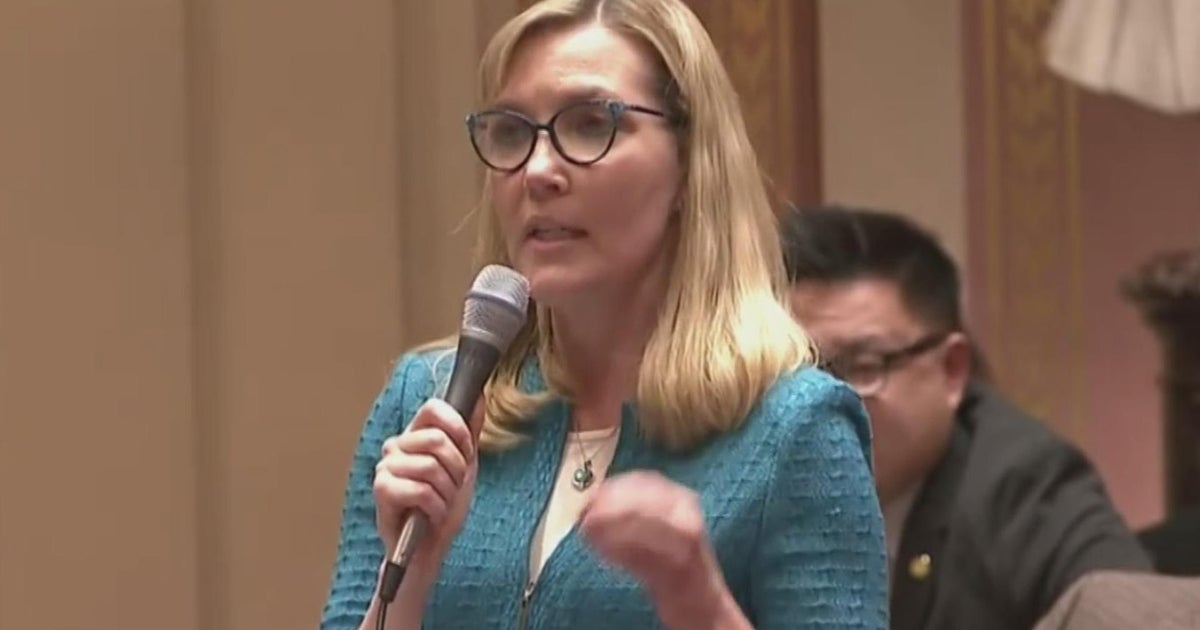Senate Democrats unveil tax plan with rebate checks, other credits that differ with House plan
ST. PAUL, Minn. -- Minnesota Senate Democrats on Wednesday unveiled their tax proposal, which includes rebate checks, social security tax cuts, and tax credits to help families with children. But there are significant differences with DFLers in the House and Gov. Tim Walz's own plan to provide relief for Minnesota taxpayers.
The DFL-led legislature will sort out the differences in the final weeks of the session. Here are some of the key proposals in the bills:
Rebate checks
The Senate's $4 billion bill over four years has direct checks of $558 for couples making up to $150,000 per year and $279 for single filers making up to $75,000 per year—with an additional $56 per child up to three dependents.
Those rebates are smaller than visions from Gov. Tim Walz who pitched checks as high as $2,600 per family and House Democrats whose recently announced proposal set for a vote Thursday has as much as $1,375 for a family of five with similar income restrictions.
Tax chair Sen. Ann Rest, DFL-New Hope, was confident all sides could find common ground.
"We are going to have a very easy time getting to an agreement on those rebates that's meaningful for the both of us," she said Wednesday. "I don't mean just splitting the difference, but really looking at should we be concentrating on the number of children in a family like the House did or the number of adults and what their situation is."
Child tax credits
Families making up to $80,000 would qualify for a child tax credit providing $620 per child up to three children under 18 or dependents with disabilities under the proposed Senate language.
The House version has more money per credit and phases out eligibility for incomes greater than $35,000. The credit would be nearly doubled at $1,175 per child and Democrats in that chamber say it will cut poverty by 23%.
But the House does not include an additional child care tax credit to help families struggling to afford those costs. Taxpayers earning up to $160,000 could qualify for a maximum of $12,500, depending on the number of children they have and their child care expenses in a year, under the Senate proposal.
When asked why the House did not include these provisions, tax chair Rep. Aisha Gomez, DFL-Minneapolis, last week acknowledged the high costs in the early education and child care systems but decided to boost the child tax credit for low-income families instead.
"It's not that they're mutually exclusive. But within our budget reality, we made choices. And we chose to go with this sort of expanded child tax credit that would cut child poverty by almost one quarter," Gomez said.
Social security
Republicans and some Senate Democrats pushed for full exemption of social security benefits from state income taxes. Both the House and Senate plans stop short of that, but both allow for a 100% subtraction for married taxpayers making $100,000 or less and individuals making $78,000 or less.
DFL leaders say this means 76% of seniors getting social security will not pay state taxes on that retirement income. That's an increase from the half who don't pay taxes on those benefits right now.
"Minnesotans when we were out on the campaign trail were clamoring for social security tax relief and we've done that to the tune of $1.2 billion in this bill," said Sen. Matt Klein, DFL-Mendota Heights.
People who receive public pensions like state troopers, firefighters and public safety officers will also be able to subtract up to $25,000 of those benefits when they file their taxes if they make less than $120,000 per year.
Public safety aid
The Senate includes $325 million for local governments specifically for public safety needs—most of it one-time to address urgent public safety needs. The governor sought $550 million and the House DFL does not include similar aid in its tax package.
New revenue
House Democrats in their bill create a new fifth income tax bracket of 10.85% for married couples making more than $1 million per year and individuals making $600,000. The current highest tax bracket is 9.85%.
The Senate plan has no such tax hike. Rest said it is important to her DFL caucus there are not new increases on the share of income individuals pay to the state.
"We are committed to not raising any taxes on Minnesotans—individuals Minnesotans and families—in order to bring this tax relief," she said. "I think it's a worthy goal and one we should maintain our commitment to."
Both the House and Senate want to implement new profit reporting requirements for multinational corporations that Democrats say will boost what the state collects from corporate taxes.
Republicans 'disappointed' in proposals, want more tax relief
Republicans criticize plans for tax hikes when the state has a $17.5 billion surplus. They have their own $13 billion plan that includes sending taxpayers larger rebate checks, making all social security income for Minnesota seniors tax-free, and slashing income tax rates for the first two tiers.
"You would think Democrats could find more than a paltry $3 billion in tax cuts for limited populations, but the spending spree at the Capitol will prevent broad tax relief for most Minnesotans," said Sen. Bill Weber, R-Luverne.
A top priority for him and other GOP members is full elimination of the social security income tax. Just 11 other states tax these benefits, according to the AARP. Republicans, Democrats and Walz in the divided legislature agreed to making this change last session before negotiations broke down and many proposals did not pass.
"Increasing the threshold is appreciated, but the reality is most people agree that seniors shouldn't be taxed for a benefit they already paid for," Weber said. "This unfairly pits one group of seniors against another when we should be coming together to give them the tax relief they deserve."
What's next?
The House is scheduled to vote on their tax proposal Thursday and the Senate will take up their DFL plan on Monday. Because of the differences, there will be a panel of lawmakers from both chambers that will meet to iron out the details in conference committee, so the plans are far from final.




